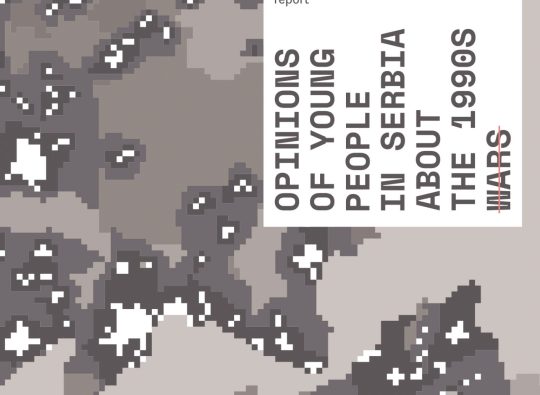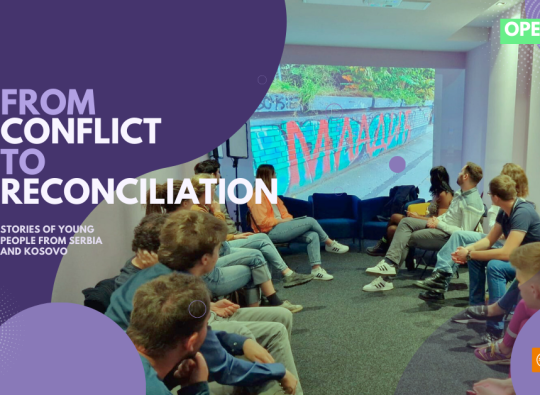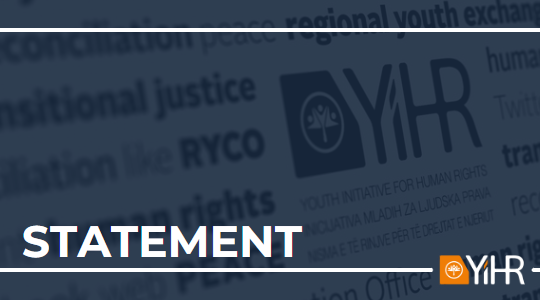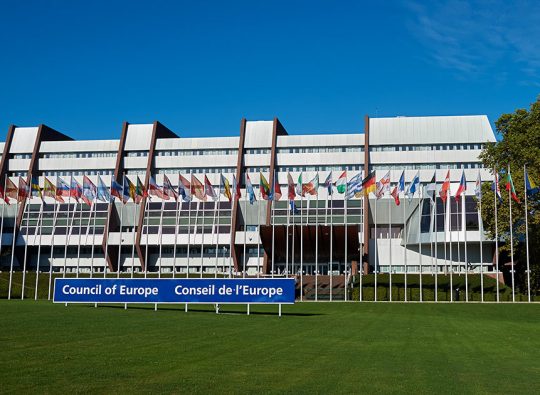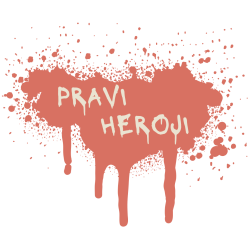Young people in Serbia are far more conservative and reserved than the generation of their parents and grandparents, according to all research and indicators. They are the least vaccinated (less than 15% of those vaccinated), with the least faith in democracy (44% of young people think that democracy is the best form of political governance) (KONS, august 2021) and mostly Eurosceptic (21% of young people have positive attitude towards the EU). A dramatic fact, which must worry everyone, is that only 45% of young people support the idea of lasting peace with Kosovo Albanians (IEA, jun 2021) while 55% does not support this idea or is not sure if they support it.
The generation born during or after the wars in former Yugoslavia, that grew up after the signing of the Brussels Agreement is by far the most belligerent in their attitudes, and not by coincidence. This a direct consequence of a poisoned public space, education system and media scene.
Still, the responsibility lies heavily on the current generation of politicians in power in both their decades of government – the 1990s as well as the 2010s. The government reduces its modest engagement in constructive regional politics to the closed-door meetings in Brussels, Berlin and the capitals in the region, while using the major portion of its political and media capital in the public space in Serbia – where it has a monopoly – for deepening tensions and intolerance.
The darkest ideas from the worst period in the Serbian history, i.e. the Milošević era, are getting rehabilitated: the idea of Greater Serbia, today repacked as the so-called “Serbian world”; the worst people – war criminals are glorified and honoured. The genocide and crimes committed in the name of Greater Serbia are being erased from history, but at the same time, through a whisper turning into a roar from the football stadiums and into the state politics, the genocide and crimes and criminals are acclaimed.
The next thing awaiting the young generation in the sequel of this nationalist hysteria is the introduction of mandatory military service. After hours of live broadcast of military parades several times a year, lasting propaganda about the military equipment of the Serbian Army and the arms race with neigbouring countries, the process of militarisation of society is getting completed.
While they are talking about peace and stability in front of foreigners, the generation of young people is being actively prepared for a new war.
Somewhere, among these young people, there is a new Vladimir Živković, who will defect the lunatic war and return his tank to the Serbian Parliament, but there are also a new Legija and a new Arkan.
The question for all in Serbia is: who of the two will have greater support of the society, institutions, governments, as well as all of us as individuals?
Today, on the International Youth Day, it is the duty of all parents, aunts and uncles, grandmothers and grandfathers, teachers, professors and mentors, to speak out about the hell of war and the hell of the 1990s: about forced mobilisations, false ‘military exercises’ which young people spent on the frontline, in a war they did not participate in, about the weeks during which they had no news about their loved ones. To speak out about those who lost their lives.
It is obvious to everyone today that the wars in former Yugoslavia could have been avoided and countless lives saved.
It is our duty today to prevent, avoid a new conflict, new war. This is the debt which older generations owe the youth, because they failed to resolve the legacy of war, but additionally poisoned them instead. This is the duty young people have in order to save their lives and the lives of others, their future, their families, as well as a chance to have a family in the future.

